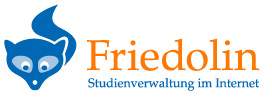| Name des Moduls | [313260] Advanced Microeconomics | Bezeichnung des Moduls | MW20.1 |
| Studiengang | [184] - Wirtschaftswissenschaften | ECTS Punkte | 6 |
| Arbeitsaufwand für Selbststudium | 120 | Häufigkeit des Angebotes (Modulturnus) | jedes 2. Semester (ab Wintersemester) |
| Arbeitsaufwand in Präsenzstunden | 60 | Dauer des Moduls | 1 |
| Arbeitsaufwand Summe (Workload) | 180 | ||
| Modul-Verantwortliche/r | PD Dr. Holger Graf; Prof. Dr. Uwe Cantner |
| Voraussetzung für die Vergabe von Leistungspunkten (Prüfungsform) | (A) Final exam (100%) or (B) midterm exam (40%) and final exam (60%). The decision on the chosen form of the exam (A or B) will be made at the beginning of the course in consultation with the students, taking into account the organizational framework conditions. In case of (B), both exams need to be passed individually and the final grade is the weighted sum of individual grades. If students need to repeat the exam, a passed part need not to be retaken. |
| Unterrichtssprache | English |
| Empfohlene bzw. erwartete Vorkenntnisse | Basic knowledge in microeconomics |
| Art des Moduls (Pflicht-, Wahlpflicht- oder Wahlmodul) | 021 M.Sc. Betriebswirtschaftslehre, 684 M.Sc. Economics, 276 M.Sc. Wirtschaftsmathematik, 181 M.Ed. Wirtschaftspädagogik: Wahlpflichtmodul |
| Zusammensetzung des Moduls / Lehrformen (V, Ü, S, Praktikum, …) | Lecture (2h per week), Exercise (2h per week) |
| Inhalte | The module builds on an introductory microeconomics course and covers several advanced topics. These are topics in oligopolistic competition (with both homogeneous and differentiated products) and decisions under uncertainty (lotteries, expected utility theory, principal-agent problems). |
| Lern- und Qualifikationsziele | Students can describe the basic assumptions and methods of solving core models of industrial organisation and information economics. They are able to analyse such models, interpret the results and derive implications from their findings. When applying these abstract models to real situations, they are able to critically evaluate the model assumptions. |


